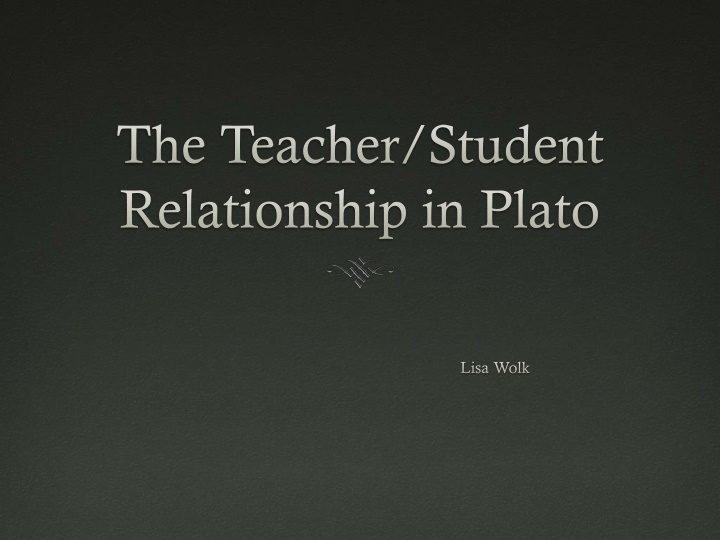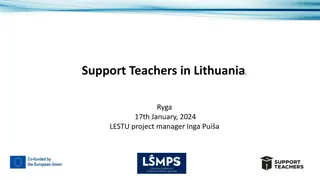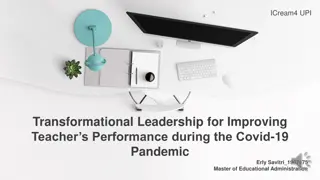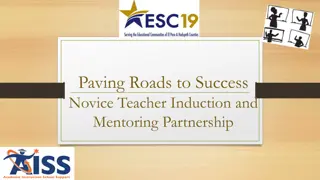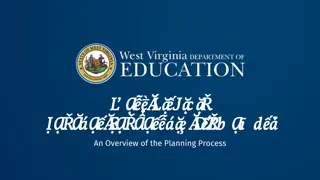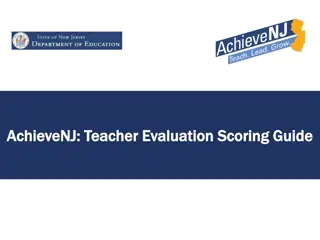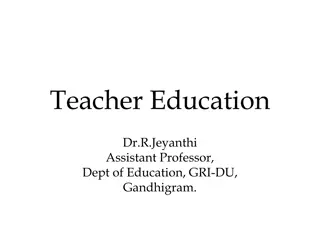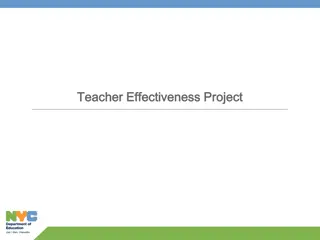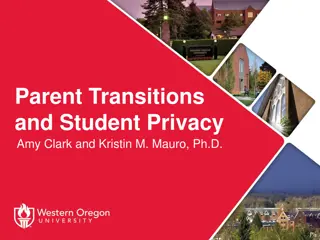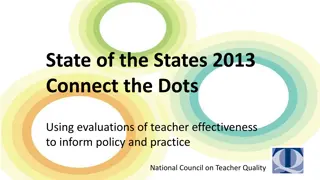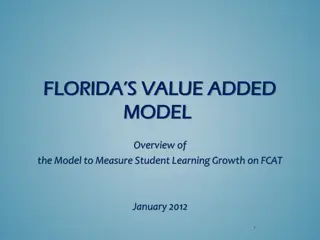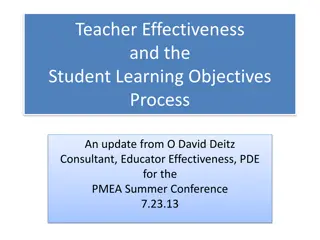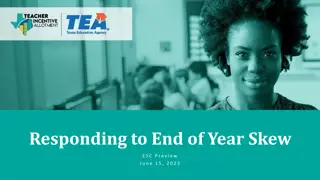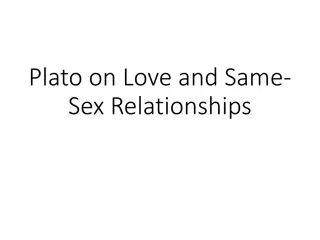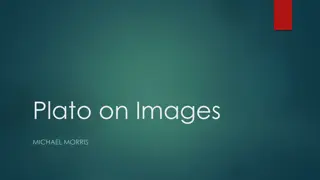The Teacher/Student Relationship in Plato
In Plato's philosophical teachings, the teacher-student relationship is explored, emphasizing the role of the teacher in guiding students towards inherent knowledge. The Academy's historical context and the concept of knowledge as a form of remembrance play crucial roles in shaping this dynamic. Through dialogue and rhetoric, the teacher shepherds the student towards transcendent knowledge existing beyond the physical world.
Download Presentation

Please find below an Image/Link to download the presentation.
The content on the website is provided AS IS for your information and personal use only. It may not be sold, licensed, or shared on other websites without obtaining consent from the author.If you encounter any issues during the download, it is possible that the publisher has removed the file from their server.
You are allowed to download the files provided on this website for personal or commercial use, subject to the condition that they are used lawfully. All files are the property of their respective owners.
The content on the website is provided AS IS for your information and personal use only. It may not be sold, licensed, or shared on other websites without obtaining consent from the author.
E N D
Presentation Transcript
The Teacher/Student Relationship in Plato Lisa Wolk
teacher, n. 1. That which shows or points out 2. One whose function is to give instruction, esp. in a school. To teach: 1. To impart or convey the knowledge of; to give instruction or lessons in (a subject); to make known, deliver (a message) 2. To deliver, hand over, give; to give in trust, commit, entrust, commend to the keeping of some one. Obs. ** From the Oxford English Dictionary online
student, n. 1. A person who is engaged in or addicted to study. 2. A person who is undergoing a course of study and instruction at a university or other place of higher education or technical training. To learn: 1. To acquire knowledge of (a subject) or skill in (an art, etc.) as a result of study, experience, or teaching. 2. To be informed, to ascertain, hear (of) ** From the Oxford English Dictionary online
The Academy: Historical Background As the Introduction to Plato in the B&H text states: Products of Plato s school: Philosophers, not politicians (80) School curriculum stressed mathematics, natural science, political theory (80) School s theoretical underpinnings were opposed to the Sophists (80) School did admit some women (80)
SoWhat is Knowledge? Some Quotes All men by nature desire knowledge. Aristotle, On Man in the Universe The knowledge of all things is possible. Leonardo da Vinci Nothing that is worth knowing can be taught. Oscar Wilde You can't know, you can only believe - or not. C.S. Lewis **From www.goodreads.com/quotes
Plato on Knowledge Continuing with the Intro to Plato in the B&H text: Knowledge beyond the physical human world does exist transcendental (81) This knowledge has always existed; our souls knew it before our physical existence (81) We aren t learning new things we are simply remembering what we knew before (81) It falls to the teacher/philosopher to shepherd the student towards this remembered knowledge to bring this knowledge back out of the student (81) This shepherding occurs through dialogue (rhetoric!) (81)
Teacher/Student Relationship The teacher/student relationship involves an older teacher and a younger (generally considerably younger) student. What are the implications of this age difference? Invites a power struggle; because of this hierarchy, Phaedrus must invite and then accept Socrates to be a person of authority. In so doing, Phaedrus must also be willing to undergo any changes that Socrates may impart. In classical Greece, the pederastic relationship was necessary in the teacher/student relationship--eros was an important feature.
The Teachers Role Socrates first teases Phaedrus in order to establish his authority over his student, and also to provoke Phaedrus into asking for more instruction: After Phaedrus finishes giving Lysias s speech, Socrates says to him, More than that, it is miraculous, my friend; I am quite overcome by it (142). Socrates also showers Phaedrus with terms of endearment throughout: My friend, my darling, you are a darling and truly golden, etc.
The Teachers Qualifications As Socrates explains, the teacher/rhetorician must himself know truth before he can disseminate truth to others: A man must know the truth about all the particular things of which he speaks or writes, and must be able to define everything separately [ ] and in the same way he must understand that nature of the soul [ ] Until he has attained all this, he will not be able to speak by the method of art. (167). Once the teacher has mastered rhetoric (or the art of speaking), he will be able to control language in order to get his students to seek and re-discover knowledge (remember, we already possess the knowledge but must simply remember it).
The Students Role As mentioned earlier, the student must be submissive to the teacher in order to be in a position to accept (or at least entertain the possibility of acceptance) what the teacher is telling him. The student must appeal to the teacher by complimenting him so that the teacher is moved to help the student (Phaedrus tells Socrates he is an amazing and most remarkable person [140]). Despite being submissive, the student can, and should, question his teacher and seek alternate opinions. (Phaedrus does this by considering the discourses by Lysias, Tisias, and Socrates).
Tensions in the Teacher/ Student Relationship Authority of the teacher vs. submission by the student Teacher s desire for increasing his own knowledge vs. teacher s desire to help student discover knowledge (not enough time for both) Student s respect of teacher vs. desire to hear the opinions of other teachers
Dangers of False Knowledge The teacher can easily lead the student astray if the teacher himself does not posses the truth. Or, the teacher can intentionally lead others astray for the purposes of evil. Socrates underscores this point with his example of the horse vs. the ass (156-157). Socrates also makes a distinction between pursuing truth and opinions, favoring the former (158).
Your Turn Do you side with the Platonic or Sophistic view of knowledge? Why? How do you think human knowledge is gained and/or possessed? In what ways do we see the Platonic notions of the student/teacher relationship today? How are our teacher/student relationships different? What should the role of the teacher be? What sorts of actions violate the teacher-student relationship?
Works Consulted/ Further Reading Ausland, Hayden. Poetry, Rhetoric, and Fiction in Plato s Phaedrus. Symbolae Osloenses. 84.1 (2010): 2-25. Arts and Humanities Citation Index. Web. 23 Sept. 2014. Brook, Tiffany. The Language of Love and Learning: Connecting Eros, Rhetoric, and Knowledge in the Phaedrus. Midwest Quarterly. 51.3 (2010): 254-69. Scopus. Web. 23 Sept. 2014. McPherran, Mark. Socrates, Plato, Eros, and Liberal Education. Oxford Review of Education. 36.5 (2010): 527- 41. Scopus. Web. 23 Sept. 2014.
